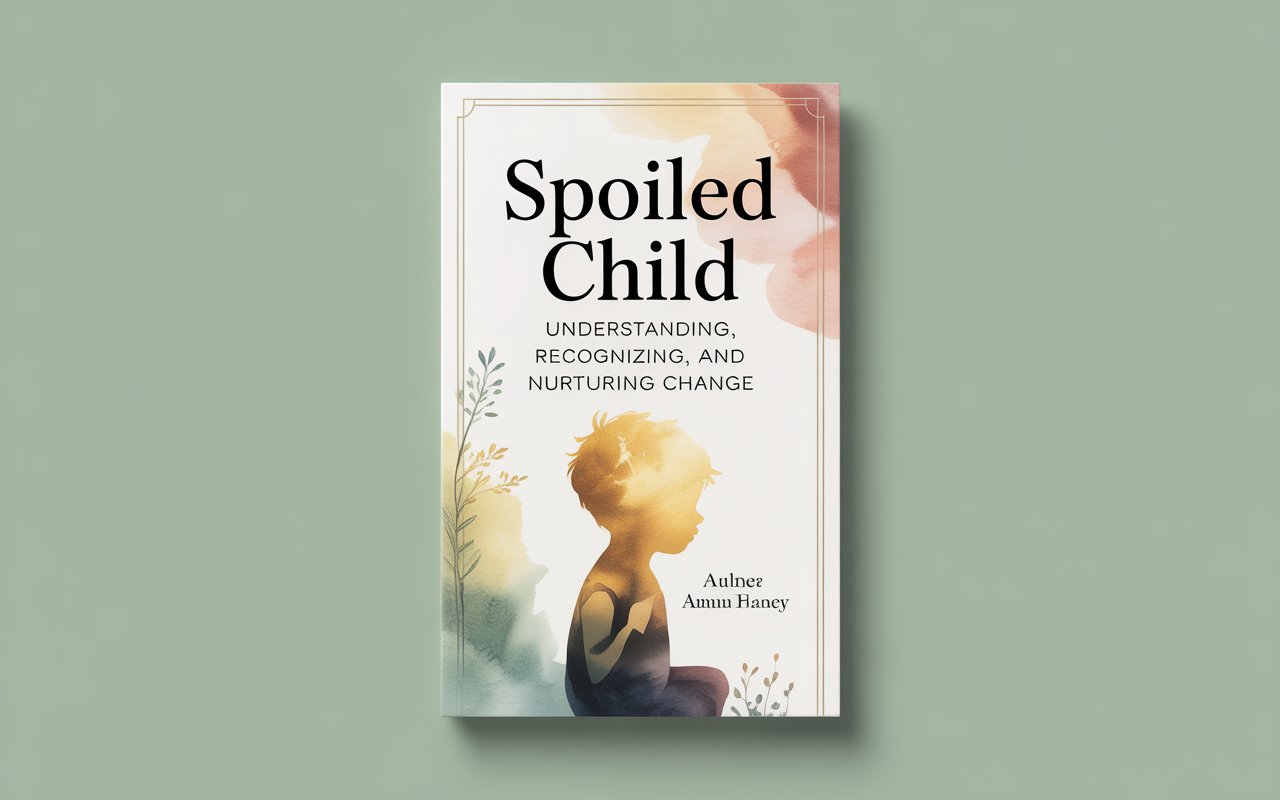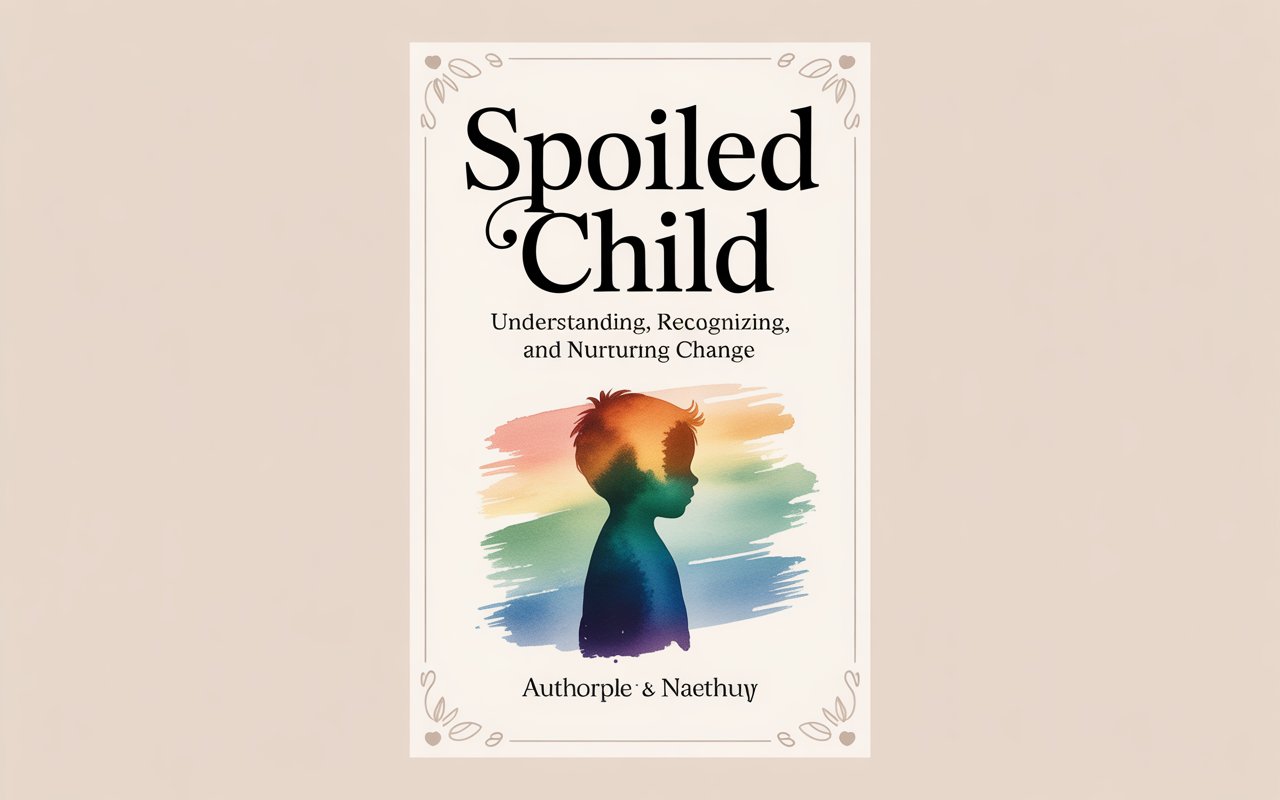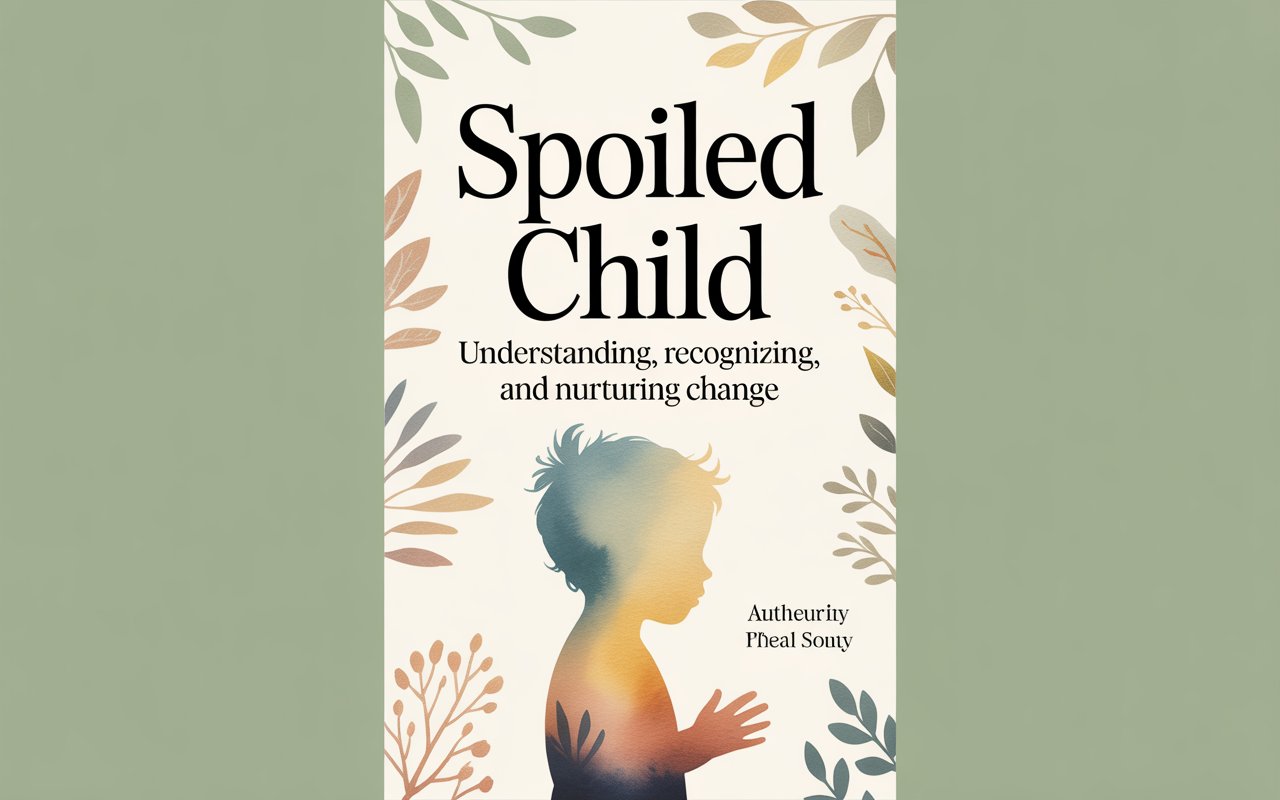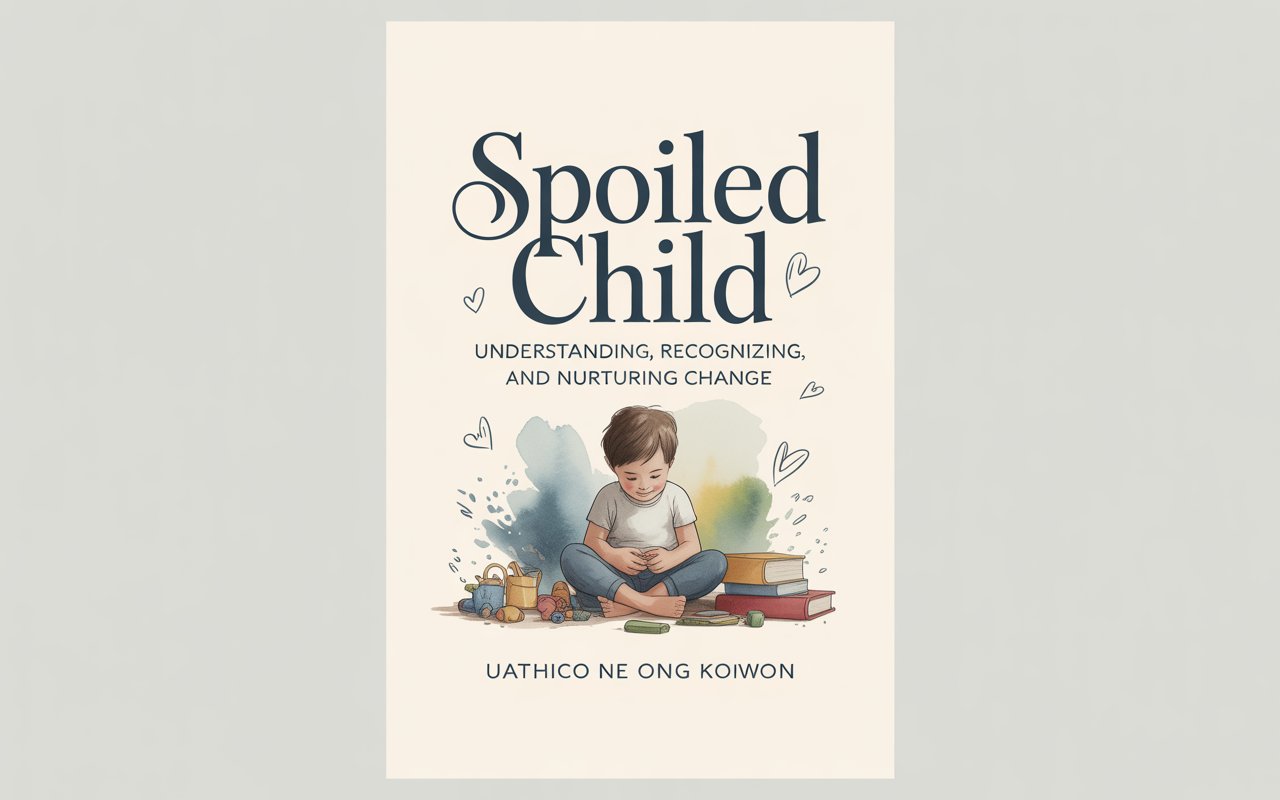Raising children is one of the most rewarding yet challenging experiences in life. Every parent dreams of raising kind, respectful, and responsible individuals. Yet sometimes, despite good intentions, a child may develop patterns of behavior that reflect overindulgence, entitlement, or lack of discipline — commonly referred to as being a “spoiled child.”
But what does this really mean? How does it happen? And, most importantly, how can parents redirect this behavior in a healthy, constructive way?
In this article, we’ll dive deep into the causes, signs, consequences, and solutions related to spoiled behavior in children, while keeping the tone light, conversational, and relatable.
What Does It Mean When a Child Is “Spoiled”?
When we hear the phrase “spoiled child,” many picture a little one throwing a tantrum in a toy store because they didn’t get what they wanted. While that can be one example, spoiled behavior goes beyond occasional meltdowns.
A spoiled child often shows persistent patterns of behavior such as:
-
Frequent demands without appreciation
-
Low tolerance for “no” or frustration
-
Entitlement and disregard for others’ feelings
-
Dependency on parents to fulfill every wish
It’s important to remember that spoiled behavior doesn’t define the child as “bad.” It reflects learned patterns that can be unlearned with guidance and patience.
How Spoiling Begins: The Roots of the Behavior
Spoiling doesn’t happen overnight; it develops over time. Understanding the roots helps in addressing it effectively.
Overindulgence with Material Things
Many parents love to give their children the best of everything—gadgets, clothes, toys, or treats. While generosity is beautiful, constant indulgence without limits can unintentionally teach a child to expect instant gratification.
Avoiding Conflict or Saying “No”
Some parents find it easier to give in than to deal with tears or tantrums. Over time, children learn that resistance leads to rewards, and they may manipulate situations to get their way.
Compensating for Time or Guilt
Busy schedules, demanding jobs, or family circumstances may lead parents to “make it up” by giving gifts or privileges. Although well-meaning, this can create emotional substitutes rather than meaningful connection.
Lack of Clear Boundaries
Children thrive on structure. When rules are unclear or inconsistently enforced, kids may push limits to see how far they can go. Without predictable consequences, spoiled behavior takes root.
Common Signs of Spoiled Behavior

Recognizing the signs early is key to addressing the issue. Here are some common indicators:
1. Frequent Tantrums Beyond Typical Age
While toddlers naturally test boundaries, prolonged tantrums in older children may indicate difficulty managing emotions when things don’t go their way.
2. Lack of Gratitude
A spoiled child often overlooks kindness or generosity, expecting things as their “right” rather than gifts.
3. Constant Demands
Whether it’s snacks, attention, or new toys, some children become relentlessly demanding, expecting parents to fulfill every desire immediately.
4. Disrespect Toward Others
Entitlement can manifest as talking back, ignoring rules, or dismissing authority, including teachers or other adults.
5. Difficulty Sharing or Cooperating
Spoiled children may resist sharing toys, taking turns, or collaborating, often wanting the spotlight entirely on themselves.
The Difference Between Loving and Spoiling
Here’s an important distinction: Love is unconditional; spoiling is excessive accommodation.
Giving hugs, encouragement, or quality time doesn’t spoil children. In fact, emotional nurturing is essential for healthy development. Spoiling happens when love is replaced with lack of boundaries or overindulgence, making it more about pleasing than parenting.
Think of it like watering a plant:
-
Love is the right amount of water, sunlight, and care.
-
Spoiling is overwatering—done with good intentions, but it can actually weaken the roots.
Psychological and Social Impact of Spoiling
Spoiling may seem harmless at first, but over time, it can shape a child’s personality and interpersonal skills.
Poor Emotional Regulation
Children who are constantly given what they want may struggle to handle disappointment or delays, leading to frustration or anger when life doesn’t go their way.
Entitlement Mindset
They may develop a sense of “the world owes me”, making it hard to navigate social relationships or workplace expectations later in life.
Weakened Problem-Solving Skills
When parents fix every problem instantly, children don’t learn to face challenges or think independently.
Strained Peer Relationships
Spoiled behavior can alienate peers. Children who don’t share, cooperate, or show empathy often face social rejection or isolation.
Parenting Styles and Their Role

Parenting style has a significant impact on whether spoiled behavior develops.
Permissive Parenting
These parents are warm and loving but lack structure and limits. Their children often grow up feeling entitled, as boundaries are unclear.
Authoritarian Parenting
While strict rules exist, lack of warmth can lead to rebellion rather than spoiled behavior. However, some children may become demanding in other ways if their emotional needs are unmet.
Authoritative Parenting
This balanced approach—firm but loving—tends to produce well-adjusted children. Boundaries are clear, but communication and emotional support are strong.
How to Prevent Spoiling in the First Place
The best way to address spoiled behavior is to prevent it from taking root. Here are practical ways:
Set Clear and Consistent Rules
Children need to know what’s expected. Whether it’s bedtime, screen time, or chores, consistency builds trust and understanding.
Teach the Value of “No”
Saying “no” isn’t cruel; it’s part of preparing children for real-life situations where they won’t always get what they want.
Encourage Effort Over Rewards
Instead of handing out gifts for every small act, focus on praising effort, kindness, and responsibility.
Model Gratitude and Respect
Children absorb what they see. If parents consistently show gratitude, patience, and humility, children naturally mirror those behaviors.
Spend Quality Time
Connection doesn’t mean material gifts. Reading together, cooking, playing, or talking builds stronger emotional bonds than any toy can.
How to Address and Transform Spoiled Behavior
If spoiled patterns have already emerged, don’t panic. Children are incredibly adaptable, and change is absolutely possible with patience and consistency.
1. Stay Calm and Patient
Children may resist new rules initially. Stay composed—anger or guilt can undermine your efforts.
2. Reinforce Boundaries
Set clear consequences for unacceptable behavior and follow through consistently. Empty threats only weaken authority.
3. Involve Them in Problem-Solving
Ask questions like, “What do you think is a fair solution?” This encourages responsibility and self-reflection.
4. Teach Empathy
Encourage your child to consider others’ feelings. Activities like volunteering, sharing, or role-playing can nurture compassion.
5. Offer Natural Consequences
For example, if a child refuses to wear a coat, let them experience mild discomfort from the cold. Real-world consequences teach faster than lectures.
Real-Life Example: The “Birthday Party” Scenario

Imagine a child who throws a fit at their birthday party because they didn’t get the exact cake design they wanted. Guests feel uncomfortable, parents are embarrassed, and the moment becomes stressful.
Instead of scolding publicly, a parent who addresses spoiled behavior constructively might calmly step aside with the child, explain why the reaction was inappropriate, and discuss how to handle disappointment with grace. Over time, repeated moments like this shape character far more than lectures ever will.
Why Empathy and Gratitude Are Game Changers
Gratitude and empathy act as antidotes to entitlement. Teaching children to appreciate what they have and consider others’ feelings helps them grow into thoughtful, resilient individuals.
Simple practices like:
-
Saying “thank you” daily
-
Writing gratitude notes
-
Volunteering as a family
-
Talking about how others feel
…can build habits that anchor humility and kindness.
When to Seek Professional Help
Sometimes, spoiled behavior can be linked to deeper emotional or developmental issues. If a child shows persistent, intense behavioral problems despite consistent parenting strategies, seeking guidance from a child psychologist or counselor may help. Early intervention can make a significant difference.
Conclusion
Spoiled behavior is not a permanent label. It’s simply a reflection of patterns that can be unlearned through loving firmness, empathy, and clear boundaries. By understanding the causes, recognizing the signs, and applying consistent strategies, parents can nurture responsible, emotionally intelligent children who thrive in the real world.
Remember, the goal isn’t to raise a “perfect” child—it’s to guide them toward maturity, one thoughtful step at a time.
Frequently Asked Questions (FAQs)
1. Can a spoiled child change their behavior?
Yes, absolutely. With consistent boundaries, empathy, and patient guidance, most children can unlearn spoiled behavior and adopt healthier habits.
2. Is saying “no” to a child harmful?
No. In fact, it’s essential. Saying “no” helps children understand limits and prepares them for real-life situations where things don’t always go their way.
3. Can a child be spoiled with attention?
No, genuine attention isn’t spoiling. Overindulgence without boundaries spoils a child—not love, time, or affection.
4. How early can spoiled behavior start?
Patterns can begin as early as toddlerhood if boundaries aren’t set. However, they become more noticeable around preschool and elementary ages.
5. What’s the biggest mistake parents make with spoiled children?
The most common mistake is inconsistency—setting rules but not following through. Consistency is the backbone of behavioral change.
